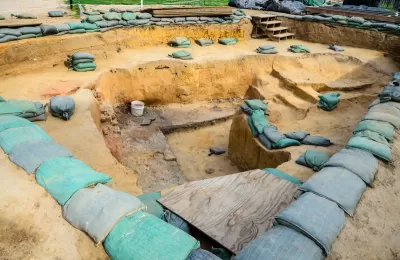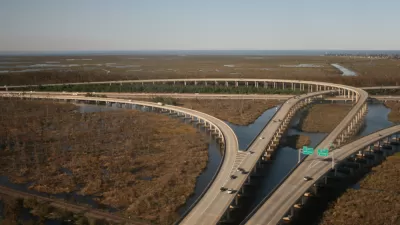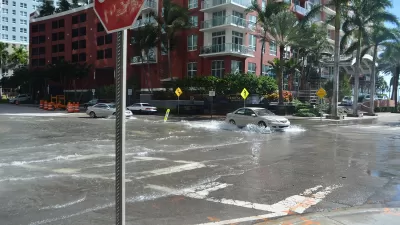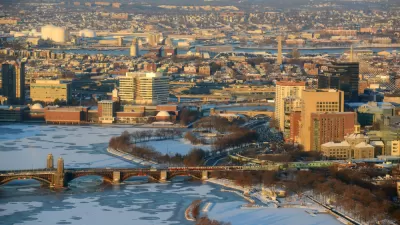Researchers have created a digital database of archaeological sites in the U.S.—and thousands could be lost to sea-level rise.

A new study shows that sea level rise could drown tens of thousands of archeological sites in the southeastern United States alone, potentially destroying critical evidence about early North American settlements and their own responses to climate change," Kate Wheeling writes in Pacific Standard.
According to the study, nearly 20,000 archaeological sites would be submerged if sea levels rose by one meter—an increase that could occur by the end of the century. At five meters, more than 32,000 sites would be destroyed. For more inland areas, it's not the sea itself but mitigation efforts that could pose a threat, as "development to accommodate relocated populations or to try to stave off flooding" could destroy cultural resources.
To complete the study, researchers catalogued more than half a million archaeological sites in a comprehensive multi-state database dubbed the Digital Index of North American Archaeology.
FULL STORY: HOW RISING SEA LEVELS THREATEN AMERICA'S CULTURAL HERITAGE

Study: Maui’s Plan to Convert Vacation Rentals to Long-Term Housing Could Cause Nearly $1 Billion Economic Loss
The plan would reduce visitor accommodation by 25,% resulting in 1,900 jobs lost.

North Texas Transit Leaders Tout Benefits of TOD for Growing Region
At a summit focused on transit-oriented development, policymakers discussed how North Texas’ expanded light rail system can serve as a tool for economic growth.

Using Old Oil and Gas Wells for Green Energy Storage
Penn State researchers have found that repurposing abandoned oil and gas wells for geothermal-assisted compressed-air energy storage can boost efficiency, reduce environmental risks, and support clean energy and job transitions.

Private Donations Propel Early Restoration of Palisades Playground
Los Angeles has secured over $1.3 million in private funding to restore the Pacific Palisades playground months ahead of schedule, creating a modern, accessible space that supports community healing after recent wildfires.

From Blight to Benefit: Early Results From California’s Equitable Cleanup Program
The Equitable Community Revitalization Grant (ECRG) program is reshaping brownfield redevelopment by prioritizing projects in low-income and environmental justice communities, emphasizing equity, transparency, and community benefits.

Planting Relief: Tackling Las Vegas Heat One Tree at a Time
Nevada Plants, a Las Vegas-based nonprofit, is combating the city’s extreme urban heat by giving away trees to residents in underserved neighborhoods, promoting shade, sustainability, and community health.
Urban Design for Planners 1: Software Tools
This six-course series explores essential urban design concepts using open source software and equips planners with the tools they need to participate fully in the urban design process.
Planning for Universal Design
Learn the tools for implementing Universal Design in planning regulations.
Ascent Environmental
Borough of Carlisle
Institute for Housing and Urban Development Studies (IHS)
City of Grandview
Harvard GSD Executive Education
Toledo-Lucas County Plan Commissions
Salt Lake City
NYU Wagner Graduate School of Public Service





























